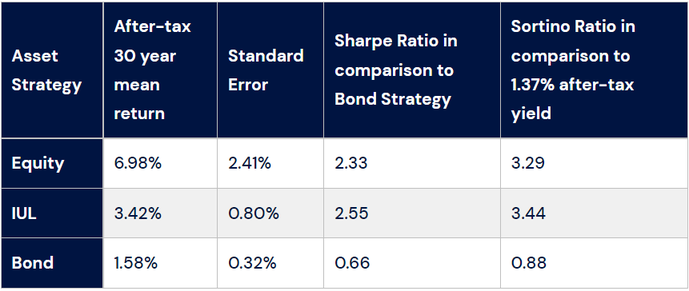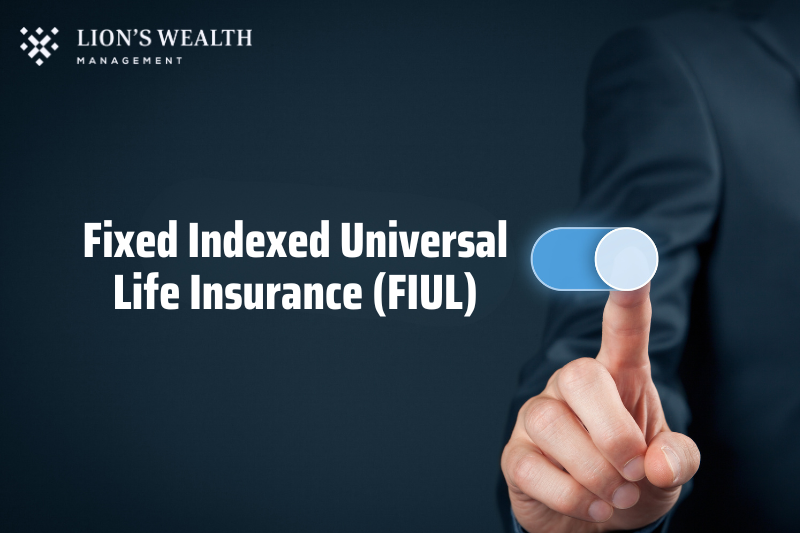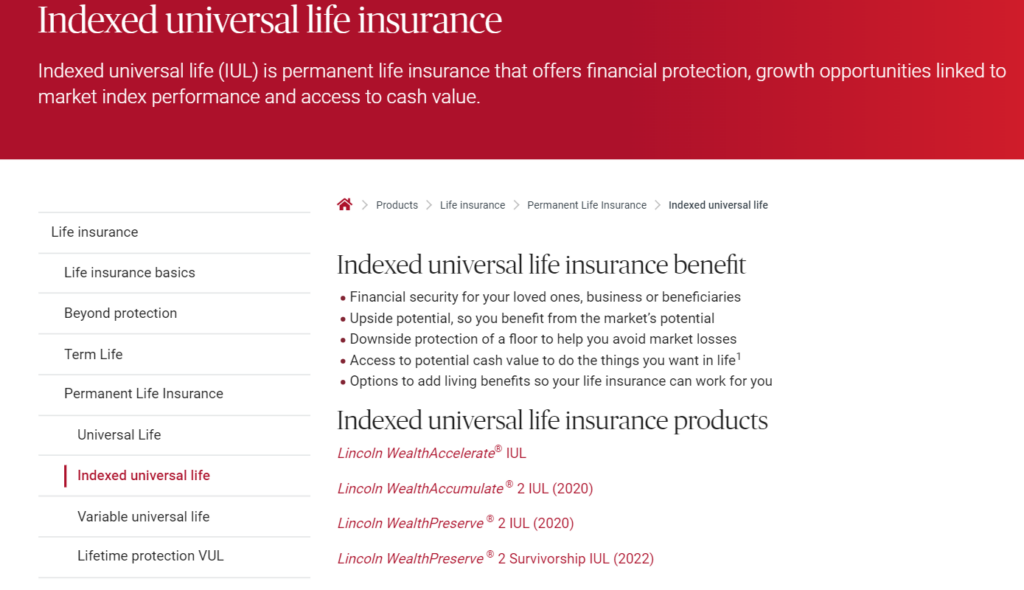All Categories
Featured
Table of Contents
1), often in an effort to beat their group standards. This is a straw man disagreement, and one IUL individuals like to make. Do they compare the IUL to something like the Vanguard Total Stock Exchange Fund Admiral Show to no tons, a cost proportion (EMERGENCY ROOM) of 5 basis points, a turnover ratio of 4.3%, and an extraordinary tax-efficient record of circulations? No, they contrast it to some terrible actively handled fund with an 8% load, a 2% ER, an 80% turn over proportion, and an awful record of temporary funding gain distributions.
Common funds often make annual taxable circulations to fund proprietors, also when the value of their fund has actually dropped in worth. Shared funds not just need income reporting (and the resulting yearly taxation) when the shared fund is going up in worth, but can also impose earnings taxes in a year when the fund has dropped in value.
That's not how common funds function. You can tax-manage the fund, gathering losses and gains in order to minimize taxable distributions to the investors, but that isn't somehow mosting likely to alter the reported return of the fund. Just Bernie Madoff kinds can do that. IULs stay clear of myriad tax traps. The possession of common funds might call for the mutual fund owner to pay projected tax obligations.

IULs are easy to place to make sure that, at the proprietor's death, the beneficiary is exempt to either earnings or estate tax obligations. The same tax obligation decrease strategies do not function virtually also with common funds. There are various, often pricey, tax obligation catches connected with the timed buying and selling of mutual fund shares, catches that do not use to indexed life Insurance.
Opportunities aren't very high that you're mosting likely to undergo the AMT due to your mutual fund circulations if you aren't without them. The rest of this one is half-truths at best. While it is real that there is no income tax obligation due to your successors when they inherit the earnings of your IUL policy, it is additionally true that there is no earnings tax obligation due to your heirs when they inherit a shared fund in a taxed account from you.
Www Iul
The government estate tax obligation exemption limitation mores than $10 Million for a couple, and growing annually with inflation. It's a non-issue for the substantial bulk of physicians, much less the remainder of America. There are far better means to stay clear of inheritance tax issues than acquiring investments with low returns. Mutual funds might trigger revenue tax of Social Protection advantages.

The development within the IUL is tax-deferred and might be taken as tax totally free income using fundings. The plan proprietor (vs. the common fund manager) is in control of his/her reportable earnings, hence allowing them to decrease or perhaps eliminate the tax of their Social Safety advantages. This set is fantastic.
Here's one more minimal problem. It holds true if you get a common fund for claim $10 per share right before the circulation date, and it disperses a $0.50 distribution, you are then going to owe taxes (probably 7-10 cents per share) in spite of the fact that you haven't yet had any kind of gains.
However ultimately, it's actually about the after-tax return, not just how much you pay in tax obligations. You are mosting likely to pay even more in taxes by utilizing a taxed account than if you acquire life insurance. But you're likewise probably mosting likely to have more money after paying those tax obligations. The record-keeping demands for owning common funds are substantially a lot more complicated.
With an IUL, one's records are kept by the insurance provider, copies of yearly declarations are mailed to the proprietor, and distributions (if any) are totaled and reported at year end. This is additionally kind of silly. Naturally you ought to maintain your tax obligation documents in situation of an audit.
Universal Life Insurance California
Rarely a factor to purchase life insurance policy. Mutual funds are generally component of a decedent's probated estate.
On top of that, they are subject to the delays and costs of probate. The earnings of the IUL plan, on the various other hand, is constantly a non-probate distribution that passes outside of probate directly to one's named recipients, and is for that reason not subject to one's posthumous lenders, undesirable public disclosure, or comparable hold-ups and costs.
We covered this one under # 7, yet just to recap, if you have a taxable mutual fund account, you must put it in a revocable count on (or perhaps less complicated, use the Transfer on Fatality designation) to avoid probate. Medicaid disqualification and life time revenue. An IUL can offer their owners with a stream of revenue for their entire life time, no matter for how long they live.

This is advantageous when organizing one's events, and converting properties to revenue before an assisted living home arrest. Mutual funds can not be converted in a similar manner, and are usually thought about countable Medicaid possessions. This is an additional silly one supporting that poor individuals (you know, the ones that need Medicaid, a federal government program for the bad, to pay for their assisted living facility) need to utilize IUL as opposed to common funds.
Universal Life Online
And life insurance policy looks dreadful when compared rather versus a retirement account. Second, individuals who have cash to acquire IUL above and past their pension are going to have to be terrible at taking care of money in order to ever get approved for Medicaid to spend for their assisted living home prices.
Persistent and incurable health problem biker. All policies will certainly permit a proprietor's easy accessibility to cash money from their plan, usually waiving any abandonment fines when such individuals experience a severe ailment, require at-home care, or come to be constrained to an assisted living home. Common funds do not supply a similar waiver when contingent deferred sales fees still put on a shared fund account whose owner needs to market some shares to money the prices of such a keep.
Benefits Of An Iul
You get to pay more for that advantage (biker) with an insurance plan. Indexed global life insurance coverage gives fatality benefits to the beneficiaries of the IUL owners, and neither the owner neither the beneficiary can ever before shed cash due to a down market.
Now, ask yourself, do you really require or want a survivor benefit? I certainly do not require one after I reach economic freedom. Do I want one? I suppose if it were cheap enough. Certainly, it isn't economical. Generally, a purchaser of life insurance pays for the true expense of the life insurance policy benefit, plus the costs of the policy, plus the revenues of the insurance provider.
Universal Premium Acceptance Corporation
I'm not totally sure why Mr. Morais threw in the entire "you can not lose cash" once again right here as it was covered quite well in # 1. He just intended to repeat the finest selling factor for these points I intend. Once more, you do not lose nominal dollars, however you can shed genuine dollars, along with face major chance cost as a result of reduced returns.

An indexed global life insurance policy policy owner might exchange their policy for a completely various plan without activating income taxes. A common fund owner can not move funds from one common fund company to another without offering his shares at the previous (thus triggering a taxed occasion), and buying new shares at the latter, usually based on sales fees at both.
While it is true that you can trade one insurance coverage policy for one more, the reason that individuals do this is that the first one is such a dreadful policy that also after getting a new one and going via the early, adverse return years, you'll still appear ahead. If they were marketed the ideal plan the very first time, they should not have any wish to ever before exchange it and experience the very early, negative return years once again.
Table of Contents
Latest Posts
Iul Calculator
Universal Reinsurance System
My Universal Insurance
More
Latest Posts
Iul Calculator
Universal Reinsurance System
My Universal Insurance